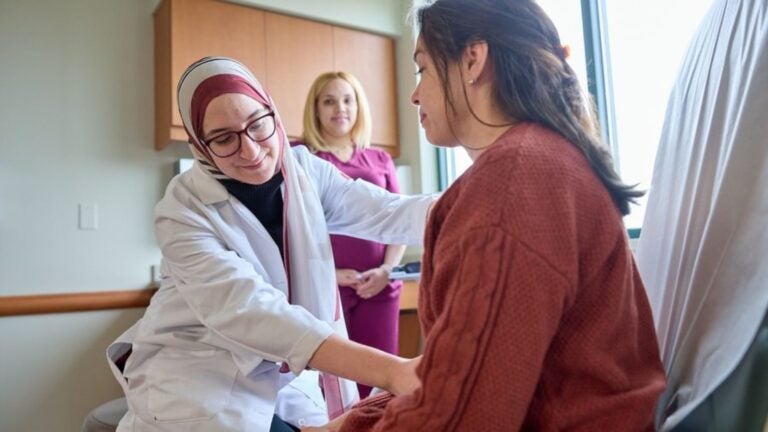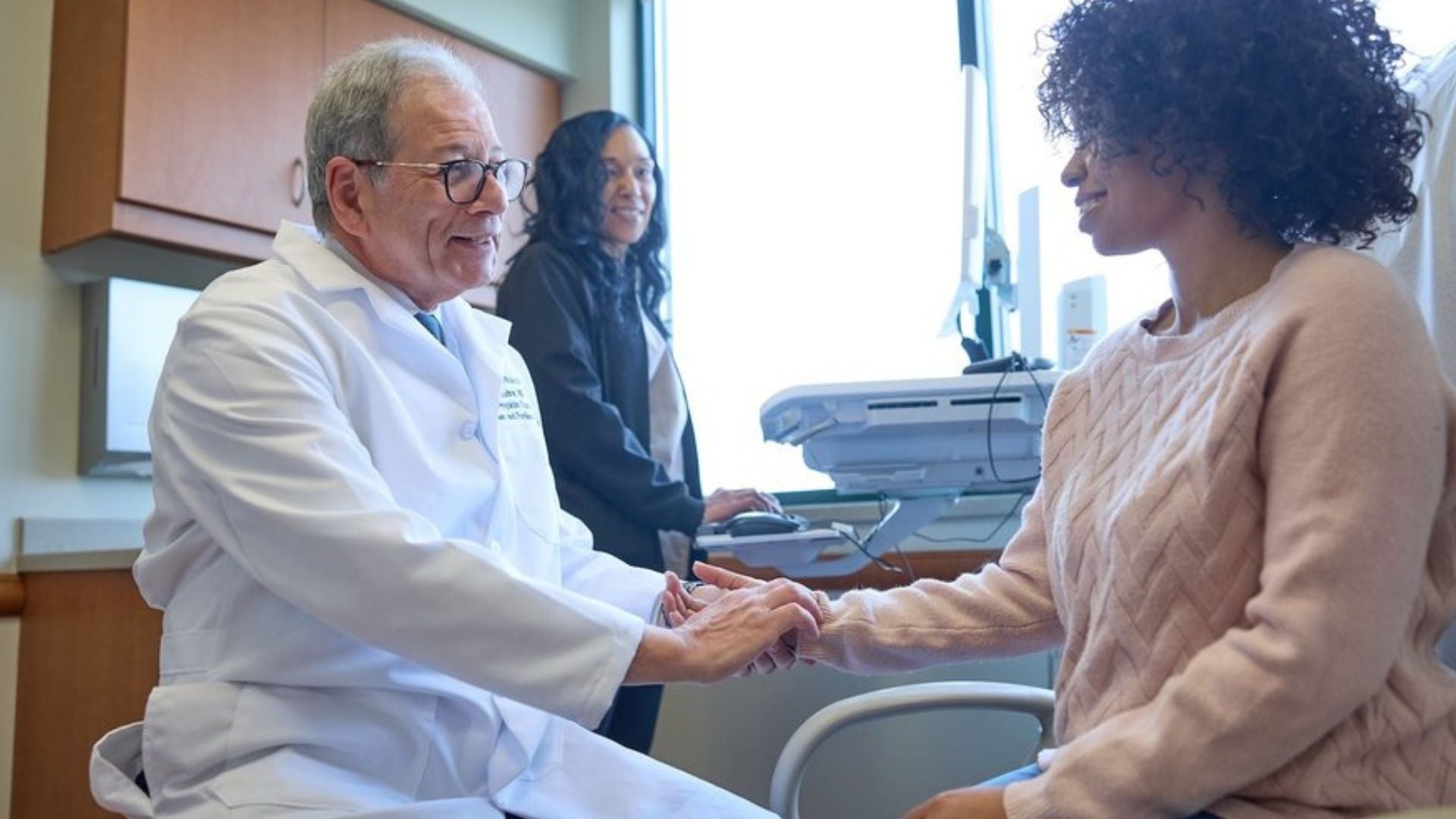SPONSORED
A Bold Pursuit to Improve Maternal Outcomes at Temple Women & Families

Note: This article is a paid placement and does not necessarily reflect the views or opinions of WHYY.
Maternal morbidity has reached all-time highs nationwide over the past three decades, while hospitals continue to close maternal and women’s health facilities. Dr. Jack Ludmir, chief physician executive at Temple’s Women & Families, emphasizes the urgent need for better access to care.
“I have been working with underserved women my whole career, and addressing the challenges in this city is an ethical imperative,” he says, noting that Philadelphia is at the center of this crisis.
“We can improve these outcomes by ensuring that women receive the high-quality pre- and post-natal care they deserve,” said Ludmir.
Programs Informed by Data–and Community

Ludmir explains that improving outcomes in Philadelphia extends far beyond opening a new hospital. “We are developing programs that address the real-life challenges women in our city face—and finding ways to overcome these barriers,” says Dr. Ludmir.
The latest Maternal Mortality in Philadelphia report indicates that pregnancy-related deaths are 15% higher in the city than the national average, with rates among Black women four times higher than those among white women. Recognizing these disparities, Temple Health physicians and researchers are collaborating with community members and organizations to understand lived experiences alongside data.
One such initiative aims to reduce mortality rates among “Black birthing people,” a term used by the Change of HEART (Here for Equity, Advocacy, Reflection, and Transformation) study. Led by researchers at the Lewis Katz School of Medicine at Temple University and the Maternal Wellness Village, this project has received $5.4 million in funding by the Patient-Centered Outcomes Research Institute (PCORI).
“We are creating novel programs, pairing clinical expertise with feedback from our patients and communities,” Dr. Ludmir explains. “We are finding ways to ensure the highest-quality care reaches those who need it most.”
Innovative Approaches in Development
To address these disparities, several new programs are being developed:
- Health Advocacy: A perinatal community health worker (pCHW) program will connect vulnerable pregnant patients with trained maternal health advocates from their first appointment until one year postpartum. The pCHWs will provide healthcare navigation, proactively address missed appointments, and offer connections to resources that influence health outcomes, all while building trust and empowerment.
- Innovative Technology: A “Maternal Health Equity Dashboard” will track maternal health trends and key factors driving inequities across different groups. This data-driven tool guides interventions aimed at reducing risks based on medical records.
- Community Connection: A doula program will offer patients additional support with prenatal education, labor and delivery, postpartum wellness, breastfeeding, and emotional support. Training and career pathways for doula positions will be available to community members.
- Patient-First Approaches: Trauma-informed care integrates cultural sensitivity into medical practices, and spaces will be designed to cultivate trust and enhance the patient experience. Features like adjustable lighting, soothing colors, and movable furniture will support safety and trust, ultimately improving health outcomes.
The First Step to Better Outcomes

Temple has opened obstetrics/gynecology outpatient practices, family medicine, and general imaging services at its new Women & Families Campus. Renovations are ongoing, and the facility will provide comprehensive hospital services dedicated to women’s and family healthcare.
“This new hospital is part of our vision where all women and families in our community get the care they deserve while also establishing new national models of care,” Dr. Ludmir states. “The dream was not just to talk about disparities in care but to have an institution actively working with the community to make a difference. This hospital presents an opportunity to understand the challenges people face and make a real impact on these disparities.”
Learn more about ways Temple Health is working to improve birthing and women’s health outcomes at TempleHealth.org/ImprovingMaternalOutcomes.

